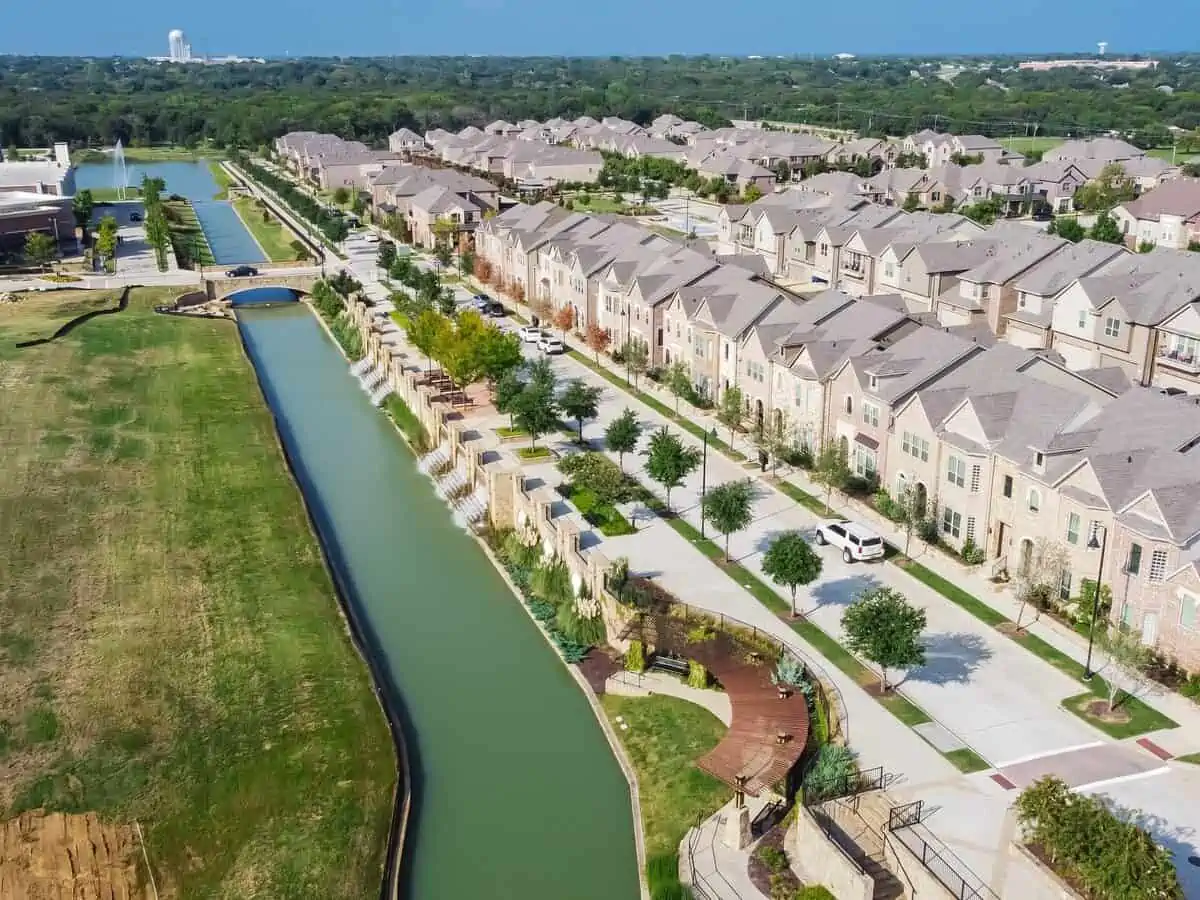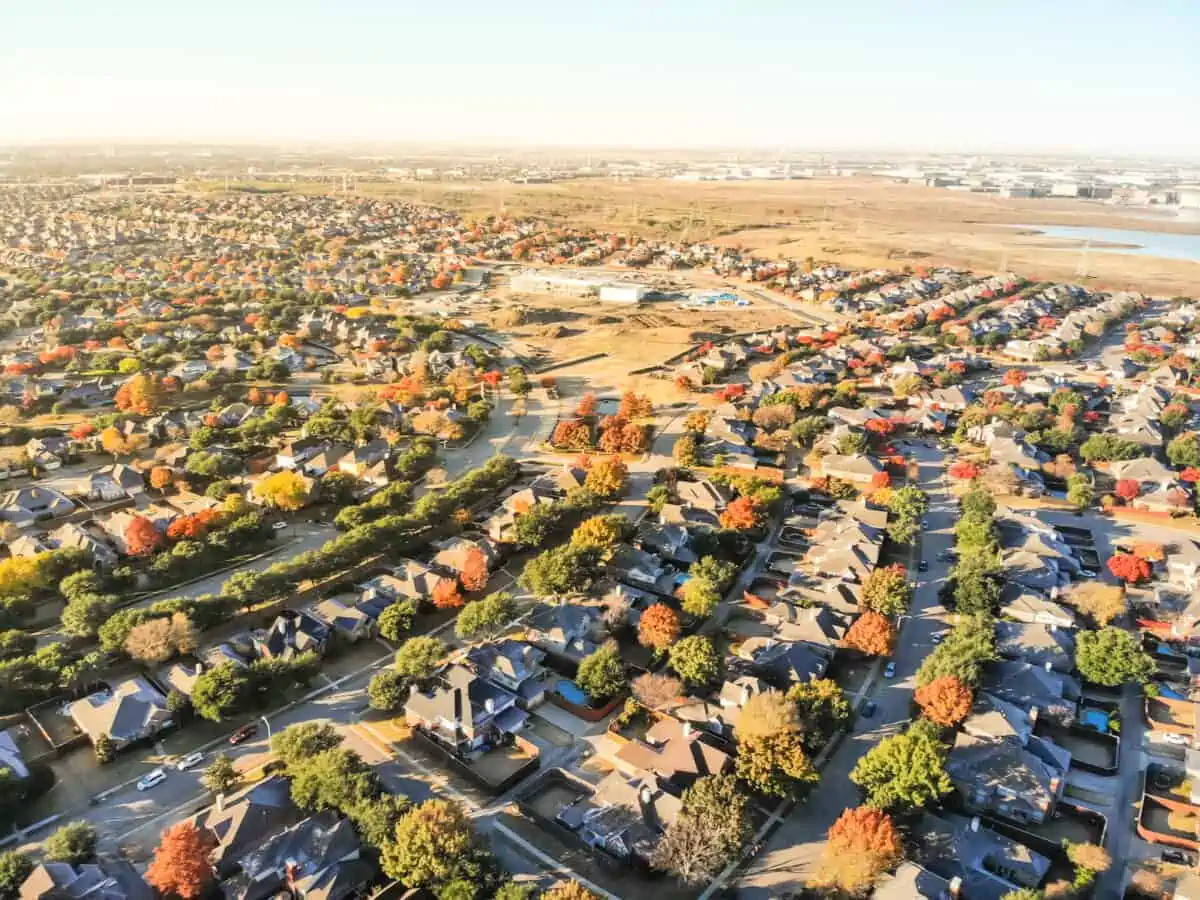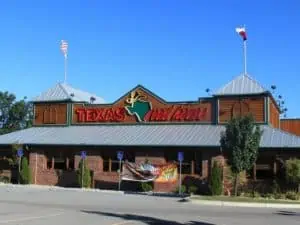The desire for people to build their dream homes or own a ranch has excited people about the best ways to buy land in Texas! Of course, there’s something fantastical about owning land in Texas, but it would help to know how to get started! So, what is the best way to buy land in Texas?
The best way to buy land in Texas is by knowing how you want to use the land. You can use land in Texas for homebuilding, hunting & recreation, agriculture, and mineral extraction. The buying process, considerations, and taxes differ slightly for each Texas land use.

What Is The Best Way To Buy Land In Texas?
Before you know the best way to buy land in Texas, you must know what you want to do with the land. You can purchase Texas land for homebuilding, hunting & recreation, agriculture, and mineral extraction. Each purpose has a slightly different process.
Knowing your purpose for buying land in Texas helps narrow down a property that best suits your needs. It also clarifies the buying process by allowing you to focus on the proper procedure for your property purchase.
For instance, many sellers restrict the building on the land. The most common deed restriction prohibits mobile homes.
Buying Texas Land For Homebuilding
Buying land in Texas for homebuilding is up to 30 percent more expensive than buying an existing home. You will also pay more if you build your home in flood plains.
If you intend to build a home on your property, consider the pros and cons because it will likely take a lot of extra work to build on a piece of land.
It can cost you, on average, 20 – 30 percent more to build a house in Texas than to purchase an existing one. Home prices were 15 percent higher in 2022 than the previous year, while building material costs increased by 19 percent.
Here’s a table of facts to consider when building a house on a Texas property:
| Pros | Personalize your ideal home | You won’t have to compete with another buyer for a home | A new home will not require a lot of maintenance | New house components mean you’ll spend less on energy costs | The feeling of a new home is hard to beat! |
| Cons | Building a new house takes, on average, seven months | There’s almost no room to negotiate pricing with builders | You can expect noise, messiness, and chaos during the building process | Making decisions regarding the details, flooring, spacing, etc., can be stressful | Few things go according to plan, so expect hidden costs along the way |
When it comes to housebuilding, you want to ensure that the property you wish to purchase does not lie in a flood plain. While it may be acceptable for agricultural use, you don’t want your home to flood during a stormy season!
Remember that your homeowner’s insurance will also be higher in a flood zone.
Buying Texas Land For Hunting & Recreation
Texas is famous for outdoor camping, hunting trips, and exhilarating horseback riding. So when you buy land in Texas for hunting & recreation, you likely want to host some of these activities on your land.
When you survey the land for potential, double-check that no endangered species occupy the land. Instead, be on the lookout for things like the Texas blind salamander, Abronia macrocarpa (flower), or Texas horn shells.
You will be prohibited from trespassing on such land and won’t gain total value for your property.
Buying Land In Texas For Agriculture
When you buy land in Texas for agriculture, you may qualify for a conservation easement, agricultural appraisal, or agricultural exemption taxes. Ensure the land has water access and does not contain endangered wildlife.
If you aim to use your Texas land for agriculture, you’ll want to harvest timber, manage wildlife, grow crops, and raise cattle. Interestingly, you may also be exempt from paying certain taxes.
- Conservation easement – This agreement can apply to agricultural, hunting & recreational land. It stipulates that you can use a portion of your land while granting permission to another group or individual to use the other part for cultural and natural preservation.
Since conservation agreements like these can fall under the charity category, you could get a tax reduction.
- Agricultural appraisal – When land in Texas qualifies for agricultural appraisal, the government decides your property tax on the value of the product your land produces rather than the land itself.
- Agricultural exemption (Ag exemption) – This exemption allows you to pay zero dollars on some of the things you use to produce timber or agricultural goods. It typically requires that you have at least 10 acres dedicated to agriculture. If, for example, you have a house measuring 1 acre, you’d need an additional 10 to qualify for agricultural exemption.
Ag exemptions can differ between counties, so it’s best to check with your county before you proceed.
If you plan to have livestock on sight, you must ensure water. Otherwise, you may need laborers and equipment to dig a pond. You’ll need proper fencing to keep your cows, sheep, and horses safe inside your land. It costs money to maintain your fence, especially with pipe fencing.
When it comes to agricultural land, you also want to ensure you terminate any current leases. (Unless you want to keep them going). If there is an endangered species on the land you wish to purchase, it may heavily restrict how you can use the land.
Buying Land In Texas For Mineral Extraction
You need to be aware of the mineral rights on your land and prepare to hire a landman to find the owner. Mineral extraction may not be your first choice, but with the number of gas and oil deposits in Texas, it’s certainly not out of the question!
Mineral rights can be a significant issue when purchasing land in Texas because most sellers want to reserve mineral rights when they sell their land.
In some instances, people may have sold mineral rights many years prior. You will need to hire someone called a landman to dig up the records and find the original owner of the mineral rights.

What Is The Process For Buying Land In Texas?
The typical process for buying land in Texas involves securing financing, looking for the land you want to buy, making an offer, inspecting the land, and acquiring the title commitment.
While there are nuances with the type of land you purchase, here’s a general flow of what to expect when you make the purchase.
- Secure Financing – By first securing financing, you familiarize yourself with the process, and sellers will take your offer more seriously if they see you are pre-approved. The best financing option is with a farm credit system member.
- Seek and find your land – HAR.com, LandsOfTexas.com, Zillow.com, LandFlip, and LandWatch are some of the best websites to find land.
- Make your offer in a contract – If there’s a licensed real estate agent present, they will likely utilize a TREC contract (Texas Real Estate Commission). It is the standard land contract for land and is flexible enough to include anything relevant to your transaction.
- Inspect the land – Once you execute a contract, it’s time to inspect your land more carefully, especially if you don’t have a licensed land inspector. Consider things like vegetative information, soil data, and flood plan data. You also want a registered professional land survey (RPLS) to know every detail about your land.
- Title Commitment – Title insurance protects buyers and their lenders from certain title flaws, and it outlines the terms and conditions for the final title policy. For instance, it guarantees that the seller of the land is its owner.
Buying Land In Texas FAQs
You may have some follow-up questions about buying land in Texas. Let’s look at possible questions.
What Are The Legal Considerations For Buying Land In Texas?
According to Texas law, when you buy land, you must grant access to companies with assets on that land. It could be anything from oil wells to public utility lines. It is a way for the previous landowner to honor their contract with the company.
Can The City Near Your Land Affect Taxes?
If your land is within city limits – ETJ (Extra Territorial Jurisdiction) – the city could adopt part of your land as part of the city. Your taxes and services will change if this were to happen.
References:
- How to buy land in Texas: Youtube.com
- The buying process for land in Texas: Youtube.com
- Pros/Cons of Texas housebuilding: www.ramseysolutions.com
- Farm credit system: wikipedia.org
Places in Texas To Find Land
- Website to find land: HAR.com
- Website to find land: land.com (LandOfTexas)
- Website to find land: Zillow.com
- Website to find land: LandFlip.com
- Website to find land: Landwatch.com
Christian Linden is a seasoned writer and contributor at Texas View, specializing in topics that resonate with the Texan community. With over a decade of experience in journalism, Christian brings a wealth of knowledge in local politics, culture, and lifestyle. He holds a Bachelor's degree in Communications from the University of Texas. When he's not writing, Christian enjoys spending weekends traveling across Texas with his family, exploring everything from bustling cities to serene landscapes.











